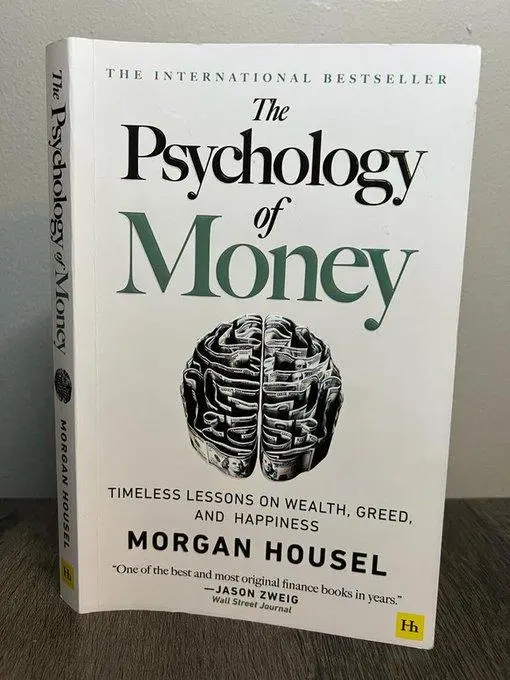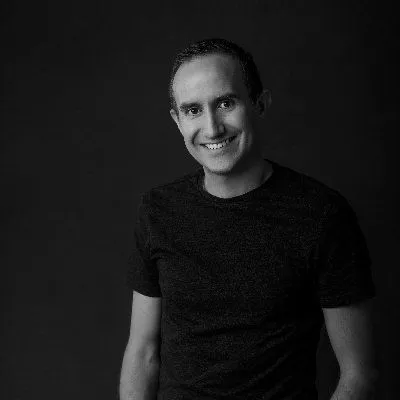8 Lessons That Clink in the Mind

Why The Psychology of Money by Morgan Housel Reads Like a Ledger of Longings
The Psychology of Money and the First Light of Finance
The Psychology of Money doesn’t open with balance sheets—it opens with breath.
Dawn spills over Dalal Street like molten brass. A chai-wallah stirs cardamom into his kettle; coins jingle like temple bells. Somewhere between spreadsheet and superstition lies Morgan Housel’s bestseller, The Psychology of Money. Since its release in 2020, this 19-chapter mosaic of essays has sold over 7 million copies, whispering that wealth isn’t about intelligence—it’s about behaviour. In India, the message lands like a proverb rediscovered.
-
Stories Beat Spreadsheets: The Core of The Psychology of Money
Housel’s book feels less like a manual and more like a mariner’s log. In one page we meet Ronald Read, the janitor who died with millions. On the next, Richard Fuscone, a Harvard banker who lost it all. The contrast is deliberate. Housel’s philosophy leans on this core belief:
“Finance is not taught well through math—it’s felt best through stories.”
That structure—the anecdotal rhythm, the Gary Provost-style sentence symphony—makes even a chartered accountant pause.
-
Time Is the Real Interest Rate
Early on, Housel reveals that Warren Buffett earned 97% of his wealth after the age of 65
Let that sink in.
This isn’t just about Buffett—it’s about how we perceive time. In a world seduced by cryptocurrency booms and IPO euphoria, The Psychology of Money reminds us:
“Compounding is a tortoise with infinite patience.
This lesson is especially potent in India, where even wedding gifts are often locked into long-term FDs and gold.
-
Luck and Risk: The Invisible Hands of Wealth
Why did Bill Gates succeed where so many others didn’t? His high school had a computer terminal—a rarity in the 1970s. Housel weaves this into a larger idea:
“Luck and risk are siblings—indistinguishable and ever-present.”
This is not fatalism. It’s a humble recalibration. Think Dalrymple’s histories or Pillai’s court intrigues—history hinges on coincidences.
-
Behaviour Over Algebra: The Unseen Coefficient
If The Psychology of Money had an equation, it would read:
Wealth = (Savings Rate) × (Time) × (Behaviour Coefficient)
The last variable—Behaviour Coefficient—is everything. Housel defines it with parables and pauses, not formulas. Finance textbooks might ignore it; real life never does.
In India, this hits home. From D-Mat apps on smartphones to elders who swear by recurring deposits, we all play different money games.
-
India’s Mirror: Why the Book Works So Well Here
This is where the book shines. Not because it was written for India, but because it translates so seamlessly into the Indian experience.
- Dowries and LICs echo “room for error.”
- Jewellery doubles as emotion and investment.
- A single medical emergency still resets generations.
The Psychology of Money doesn’t prescribe—it whispers. And in India, we’ve always listened better to whispers than to shouts.
-
The Poetry of Finance: A Style That Sings
Housel’s writing pirouettes. He borrows sparingly from data, liberally from history, and waltzes between brisk paragraphs and lyrical digressions.
No wonder startup founders gift it, teachers quote it, and even RBI officers nod at its lessons in circulars.
-
Where the Book Doesn’t Go—and Why That’s Okay
There are no graphs. No regression analysis. Critics might want more economic nuance or developing-world caveats.
But Housel didn’t build a shipyard—he built a lighthouse. His role isn’t to ferry you across the sea, but to help you see what’s coming
And sometimes, that’s all we really need.
-
The Psychology of Money in 8 Indian Proverbs
Here’s what the book teaches us, rendered in a language we’ve always understood:
- Save like a pessimist, invest like an optimist. Bad things happen. Good trends endure.
- Know “enough.” Otherwise, ambition turns bottomless.
- Let compounding breathe. It’s magic, not miracle.
- What you don’t see is wealth. The silent account matters more than the loud car.
- Sleep well, not just earn well.
- Freedom > Ferrari. Time is the ultimate dividend.
- Different people, different games. Don’t follow someone else’s playbook.
- Always leave room for surprise. Because life will surprise you.
The Candle’s-Eye View
The Psychology of Money isn’t a get-rich guide. It’s a call to perspective.
Like the Assamese grandmother rolling her silver coins in the dusk, the book asks us not what we have, but what we honour.
Close the book, and maybe, just maybe, you’ll find yourself whispering a quiet “enough.”
And in that moment, you will be richer than most.
